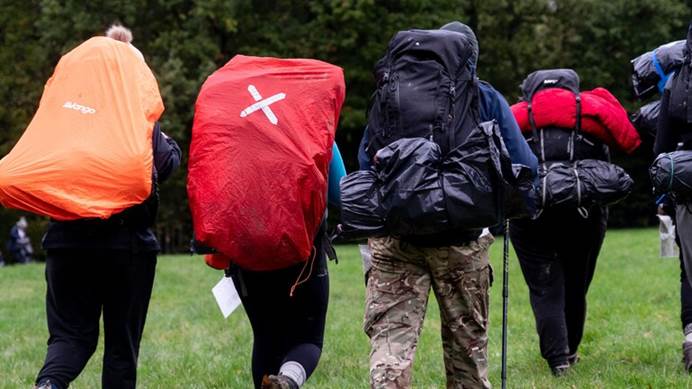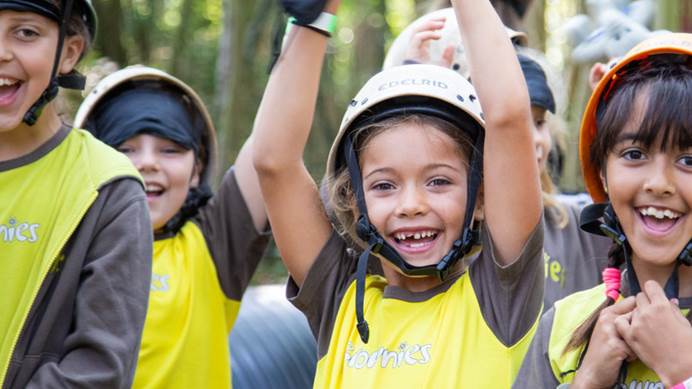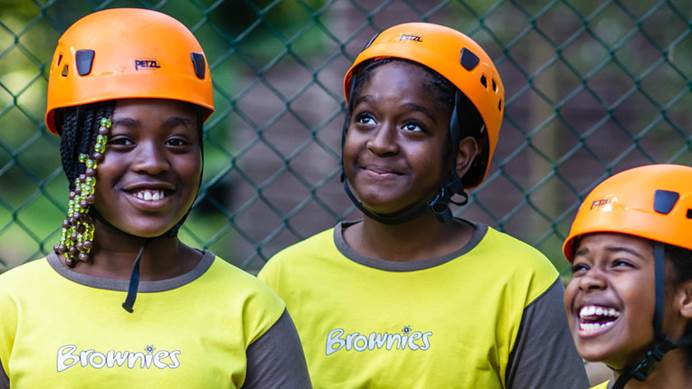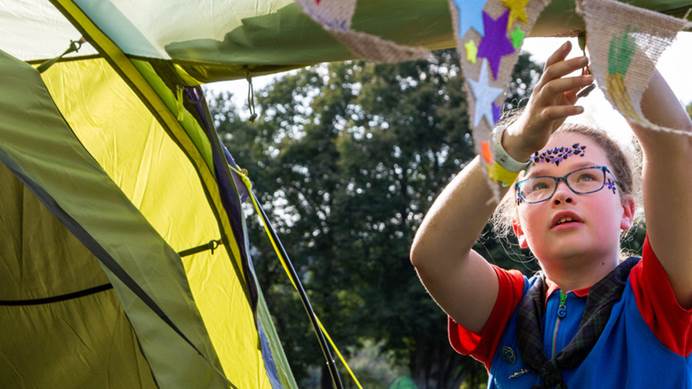Involving girls in decisions and planning
Involve your girls in deciding what their unit does from week to week
Support girls to play a leading role in planning their own programme.
Good guiding puts girls in the lead. Involve them in planning and running everything they do. You should aim to give every one of your young members the opportunity to be involved in decision making - across all sections. This helps them to develop leadership, communication and team-working skills.
Our participation on a plate resource offers a range of activities to make sure girls’ voices are heard and they’re able to take the lead in all aspects of guiding – from selecting their next skills builder or trip, to running an entire unit meeting themselves.
Download participation on a plate
Download our participation on a plate activity to get girls involved in decision-making.
Run a focus group
Focus groups are an effective way for girls to get their voices heard and to inform decision-making that affects them.
These sessions are structured as an organised discussion where girls have the chance to share their views, opinions and experiences on a particular topic. They can also be a lot of fun!
They're useful for planning activities and events as well as developing more ‘background’ areas of guiding, such as a county’s vision and strategy.
How to run a focus group
1. Planning
Find an independent facilitator - the facilitator should ideally be someone the girls do not know. They will feel more able to give honest answers and constructive feedback if they are not worried about how people will react.
Think about different learning styles and abilities - consider all the girls in your group when choosing activities. Use a variety of ways to record information such as writing, drawing and talking.
Keep age ranges narrow - it's easier to make the session accessible to everyone when the age range isn't too broad. A focus group should include no more than two sections, for example, Rainbows and Brownies together.
Choose a comfortable environment - this will help the girls and young women in the group to feel relaxed.
Stand-alone session or event - you can organise a stand-alone session or combine it with another event. It can be easier to get participants at an event but make sure that all girls know how to put themselves forward to take part.
2. During the discussion
Use open questions - allow girls to explain why they gave a particular answer. Girls should build on each others' ideas and learn from each others' experiences while also having their say. It's fine to use some closed questions where the answer is chosen from among a few options too.
Keep girls engaged - include plenty of interactive activities to keep girls stimulated. Activities should be tailored to the age of the group. Make sure you set up smaller groups for younger girls so that they each have an opportunity to speak.
Make sure you consider ways for quieter girls in the group to contribute too.
Capture all information and thoughts - do this by asking someone to take notes for you or recording the conversation and transcribing it later. When you record discussions you'll need to get participants’ permission to use the information. Remember to let them know how long you'll be using it for, as well as to test your equipment beforehand.
3. Using the outcomes
Identify key messages - review and prioritise everything that comes out of the consultation to enable you to take the topic forward.
Give feedback to the group - tell them what will be done with the information they have provided and how it will be used. You could also update girls later when you've acted on the consultation or if you can't contact them directly ask their leader to send information on.
Evaluate activities together
Evaluating the activities you've done with your unit is an important part of planning what you do in the future. Evaluation helps you to understand what girls enjoyed as well as what they got out of the experience so that you can tailor future activities for them.
Another benefit is that asking your girls to review activities and meetings helps to involve them in decision-making about the activities and experiences that they take part in. It's a great way to ensure that your programme is truly girl-led.



